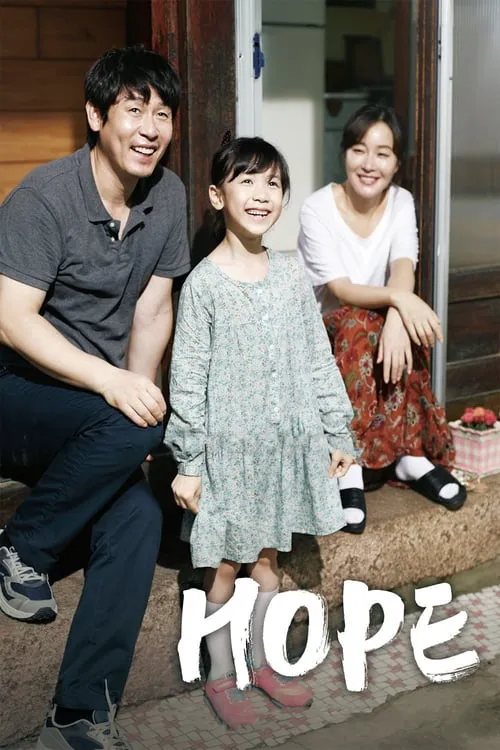Hope

Plot
"Hope" is a poignant and deeply disturbing drama that tackles the heavy subject of childhood sexual assault and its aftermath. The film centers around 8-year-old So-won, a bright-eyed and innocent girl who has her life shattered by a heinous act of violence. The assault, committed by a neighbor, leaves So-won physically and emotionally scarred, her world turned upside down by the unrelenting trauma. As So-won returns home, her parents, Do-yeon and Sung-soo, are faced with the daunting task of helping her heal. They are met with overwhelming emotions: grief, rage, guilt, and helplessness. Their initial response is one of anger, directed towards the perpetrator and the authorities who failed to prevent the crime. They struggle to come to terms with the fact that their child has been violated, that the safe haven of their home was breached. Do-yeon, a mother who has always been fiercely protective of her child, finds herself torn between her desire for justice and her need to shield So-won from any further pain. She becomes obsessed with the case, attending every court hearing, meeting with lawyers, and advocating for greater accountability. Her fixation serves as a coping mechanism, a way to channel her emotions into something more concrete than the numbness and despair that threatens to consume her. Sung-soo, on the other hand, grapples with feelings of inadequacy and guilt. He wonders if he could have done more to prevent the assault, if he could have provided a safer environment for his daughter. As the family struggles to heal, their relationship is put to the test. Do-yeon's anger and frustration often boil over, causing friction between her and Sung-soo. He becomes withdrawn, struggling to connect with his daughter and even more so, with his wife. So-won, meanwhile, begins to exhibit the physical and emotional symptoms of trauma. She becomes increasingly withdrawn, refusing to leave her room, and experiencing debilitating anxiety. Her parents, desperate to help her heal, try various methods, from therapy to play therapy. But with each attempt, they are met with resistance, frustration, and a deep sadness. The film delves into the complexities of the human psyche, revealing the intricate web of emotions that surrounds the subject of childhood trauma. The mother's anger, though understandable, begins to fester, creating tension within the family. The father's shame and guilt threaten to consume him, causing him to abandon his connection with his daughter. And So-won, the victim, struggles to make sense of her world, grappling with the unrelenting pain and confusion. The film also explores the social and cultural contexts that contribute to the normalization of such heinous acts. The lack of awareness and the failure of institutions to prevent such crimes serves as a scathing critique of the societal systems that perpetuate trauma. The perpetrator, who seems ordinary and unassuming, blurs the lines between perpetrator and normal citizen, leaving the audience questioning the notion of evil and the nature of humanity. Throughout the film, the director, Kim Bora, employs a sensitive and nuanced approach, avoiding gratuitous detail and melodrama. Instead, she presents a stark, unvarnished portrayal of the pain and struggle faced by the family. The performances are raw and authentic, capturing the emotions and complexities that come with experiencing such trauma. Ultimately, "Hope" is a film that challenges its viewers to confront the darkest aspects of humanity. It presents a stark, unsparing portrayal of a family's struggle to heal, their emotional and psychological scars left to seep into every crevice of their lives. And yet, even in the midst of such despair, the film offers a glimmer of hope. Hope for recovery, for healing, and for transformation. It is a testament to the resilience of the human spirit and the enduring bonds of family.
Reviews
Recommendations




